
On 6 June 1944, the long-anticipated assault on occupied France took place along a 50 mile (80km) front – however the amphibious landings were confined to roughly 12 miles (19km) of beaches across five areas. One of the smallest landing areas was the easternmost, where the British 3rd Infantry Division would land on Queen White and Red beaches alongside the town of Ouistreham.
Sword would be a tough nut to crack. The beach itself was well defended by the formidable stützpunkt 20, codenamed strongpoint Cod by the British, a significant company-sized fortification and the largest single strongpoint on all five Normandy beaches. To the east widerstandsnest 18 (Skate) was equipped with a 3in (75mm) anti-tank gun that could fire down the length of the beach, while widerstandsnest 21 (Trout) a little to the west could bring fire down on the attackers’ right flank. A little recognised fact is that, although considerably narrower than Omaha Beach, the average strength of the defences per mile was practically the same on Sword.
Unlike Omaha, Sword was relatively low-lying and the attackers would not have to contend with the high bluffs that characterised the US beach. But unlike Omaha, 3 Division would have to deal with significant defences inland as well. Once off the beach, several artillery strongpoints and command posts barred the way, the strongest of which was widerstandsnest 17 (Hillman). Set into the broad Periers ridge 2 miles (3km) inland, it boasted numerous underground bunkers, steel cupolas and anti-tank guns. Moreover, its strength had been badly underestimated by Allied intelligence.
This story is from the Issue 133 edition of History of War.
Start your 7-day Magzter GOLD free trial to access thousands of curated premium stories, and 9,000+ magazines and newspapers.
Already a subscriber ? Sign In
This story is from the Issue 133 edition of History of War.
Start your 7-day Magzter GOLD free trial to access thousands of curated premium stories, and 9,000+ magazines and newspapers.
Already a subscriber? Sign In
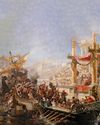
NAUMACHIA TRUTH BEHIND ROME'S GLADIATOR SEA BATTLES
In their quest for evermore novel and bloody entertainment, the Romans staged enormous naval fights on artificial lakes
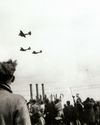
OPERATION MANNA
In late April 1945, millions of Dutch civilians were starving as Nazi retribution for the failed Operation Market Garden cut off supplies. eet as In response, Allied bombers launched a risky mission to air-drop food
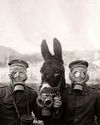
GASSING HITLER
Just a month before the end of WWI, the future Fuhrer was blinded by a British shell and invalided away from the frontline. Over a century later, has the artillery brigade that launched the fateful attack finally been identified?
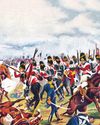
SALAMANCA
After years of largely defensive campaigning, Lieutenant General Arthur Wellesley went on the offensive against a French invasion of Andalusia
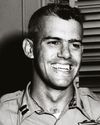
HUMBERT 'ROCKY'VERSACE
Early in the Vietnam War, a dedicated US Special Forces officer defied his merciless Viet Cong captors and inspired his fellow POWs to survive
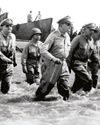
LEYTE 1944 SINKING THE RISING SUN
One of the more difficult island campaigns in WWII's Pacific Theatre saw a brutal months-long fight that exhausted Japan’s military strength

MAD DAWN
How technology transformed strategic thinking and military doctrine from the Cold War to the current day
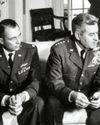
BRUSHES WITH ARMAGEDDON
Humanity came close to self-annihilation with the Cuban Missile Crisis, Broken Arrows’ and other nuclear near misses
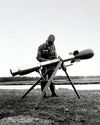
THE DEADLY RACE
How the road to peace led to an arms contest between the USA and USSR, with prototypes, proliferation and the world’s biggest bomb
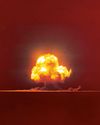
THE MANHATTAN PROJECT
Einstein, Oppenheimer and the race to beat Hitler to the bomb. How a science project in the desert helped win a war